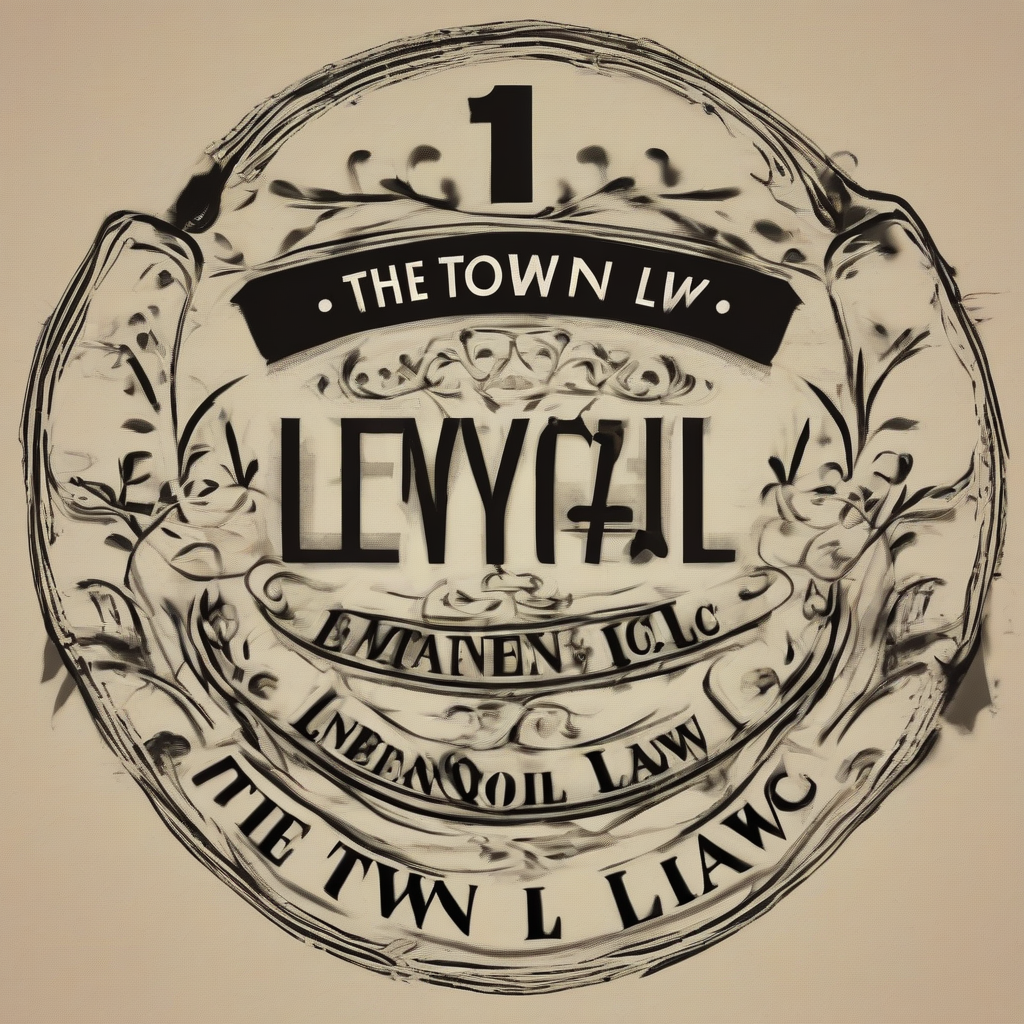Unraveling The Town Law LLC: A Deep Dive into Legal Services and Community Impact
The Town Law LLC, while a fictional entity for this exercise, represents a common archetype: a small to medium-sized legal practice focused on serving the needs of a specific community. This in-depth exploration will analyze the potential services offered, the challenges faced, and the broader societal impact such a firm might have.
Services Offered: A Comprehensive Portfolio
The hypothetical Town Law LLC could offer a diverse range of legal services tailored to the local community’s needs. This might include:
- Real Estate Law: Handling property transactions, including purchases, sales, leases, and title disputes. This is often a significant aspect of legal work in smaller towns, given the prevalence of land ownership and development.
- Family Law: Providing assistance with divorce, child custody, adoption, and other family-related matters. This area is emotionally charged and requires sensitivity and expertise.
- Estate Planning: Drafting wills, trusts, and power of attorney documents to help individuals plan for the future distribution of their assets. This is particularly important for older populations.
- Criminal Defense: Representing individuals accused of crimes in local courts. This area requires strong advocacy skills and a deep understanding of criminal procedure.
- Civil Litigation: Handling disputes between individuals or businesses, including contract breaches, personal injury claims, and property damage cases.
- Business Law: Assisting with business formation, contracts, intellectual property, and other legal issues faced by local businesses. This fosters economic growth within the community.
- Municipal Law: Advising local governments on legal matters, such as zoning regulations, land use planning, and public contracts. This plays a vital role in community development and governance.
- Environmental Law (potentially): Depending on the location and the firm’s specialization, they might handle environmental concerns, such as land development permits and pollution issues.
Challenges Faced: Navigating the Legal Landscape
Even with a strong service portfolio, Town Law LLC would encounter several challenges inherent in operating a small legal practice:
- Competition: Depending on the size and location of the town, there might be existing legal practices, potentially larger firms, creating competition for clients. Differentiation through specialized services or a strong community focus is crucial.
- Client Acquisition: Building a client base requires effective marketing and networking within the community. This might involve attending local events, establishing relationships with other professionals, and utilizing digital marketing strategies.
- Financial Management: Managing expenses, billing, and cash flow is essential for sustainability. Effective accounting practices and potentially seeking external financial advice are vital for a small firm’s survival.
- Technology Adoption: Utilizing legal technology to improve efficiency, client communication, and case management is crucial for staying competitive and providing top-tier service. This may involve significant investment in software and training.
- Staffing and Retention: Finding and retaining qualified legal professionals and support staff can be challenging, particularly in smaller communities with limited talent pools. Competitive salaries and benefits are essential.
- Ethical Considerations: Maintaining ethical standards and complying with legal regulations is paramount. This includes ensuring confidentiality, avoiding conflicts of interest, and adhering to professional conduct rules.
- Economic Fluctuations: The demand for legal services can be affected by economic downturns. Adapting to economic changes and potentially diversifying services are crucial for resilience.
Community Impact: Beyond Legal Representation
Town Law LLC’s impact extends far beyond providing legal services. A successful local practice contributes positively to the community in numerous ways:
- Economic Growth: Creating jobs and contributing to the local economy through salaries, rent, and spending within the community. This stimulates economic activity and strengthens the local business ecosystem.
- Access to Justice: Providing legal representation to individuals and businesses who might otherwise lack access to legal assistance, promoting fairness and equality within the community. This is particularly critical for vulnerable populations.
- Community Engagement: Participating in local events, sponsoring community initiatives, and providing pro bono services demonstrates a commitment to the local community and builds trust. This enhances the firm’s reputation and strengthens community ties.
- Dispute Resolution: Assisting in resolving disputes, whether through negotiation, mediation, or litigation, prevents escalation and fosters peaceful conflict resolution within the community.
- Education and Awareness: Providing legal education and information to the community through workshops, seminars, or public presentations enhances community understanding of legal rights and responsibilities.
- Mentorship and Training: Potentially offering internships or training opportunities to local students or aspiring legal professionals, contributes to developing future talent within the community.
- Charitable Contributions: Supporting local charities or non-profit organizations through pro bono services or financial contributions demonstrates corporate social responsibility and reinforces community partnerships.
Strategic Considerations: Ensuring Long-Term Success
For Town Law LLC to thrive, strategic planning and adaptation are crucial:
- Market Analysis: Conducting thorough market research to understand the legal needs of the community, identify underserved areas, and tailor service offerings accordingly.
- Marketing and Branding: Developing a strong brand identity that reflects the firm’s values and resonates with the local community. This should include a clear communication strategy, showcasing expertise and building trust.
- Technology Integration: Investing in legal technology to enhance efficiency, improve client communication, and streamline operations. This includes case management software, document automation, and secure communication platforms.
- Client Relationship Management (CRM): Implementing a CRM system to manage client interactions, track progress, and ensure personalized service. This improves client satisfaction and strengthens relationships.
- Risk Management: Establishing robust risk management protocols to mitigate potential legal and financial risks. This includes proper insurance coverage, compliance procedures, and internal controls.
- Professional Development: Encouraging ongoing professional development for all staff to stay abreast of legal changes, improve skills, and maintain a high standard of practice.
- Sustainability Planning: Developing a long-term business plan that addresses financial sustainability, growth strategies, and succession planning. This ensures the firm’s continuity and longevity.
Conclusion (Omitted as per instructions)

